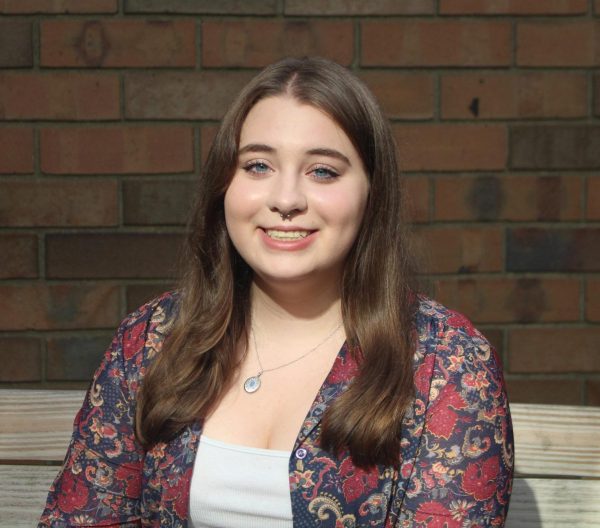The truth is, I am still winning, and you are scared. And you should be. I am autism. You ignored me. That was a mistake,” a quote from the infamous “I am Autism” commercial produced by the most mainstream autism advocacy organization to date, Autism Speaks.
Despite the organization’s long, disgusting history of disrespecting and speaking over the very voices it claims to uphold, 48 million dollars was donated to its campaign last year, according to their 2022 report. At surface level, 48 million dollars being put toward support for the autism community sounds great, but what they don’t advertise is that, according to Autismadvocacy.org, only 1 percent of the money raised is put toward family services for autistic people — almost completely neglecting the most crucial need within the community.
The widely known and flawed symbol of autism, the puzzle piece, while not created by Autism Speaks, was taken on and spread by Autism Speaks becoming a symbol that the vast majority of the autism community has grown uncomfortable with. There are two main takes on the meaning of the puzzle piece symbol. The first is autistic people have a “piece” missing, that piece being a cure and without it, they are unable to “fit” into society or live a successful life. The second perspective is that the puzzle piece represents how autism is “puzzling” or something that needs to be solved.
This leads back to the main issue I have with Autism Speaks, that they value finding a cure, which could take decades, over doing anything about discrimination, poorly-funded special education programs, or poorly informing the general public about autism [as expressed from the previous statistics about the Autism’s Speaks use of donations].
The real autistic lives that already exist, with little to no support or education available, are what should be addressed by “advocates” before further research is funded. Recently, autistic people have pushed the use of the rainbow infinity as the new symbol of autism as they express that autism is a spectrum, a non-linear disorder.
Although autism is an invisible disability, it is no less prevalent in our everyday lives. Autism is complex; we are different from the structure of our brains to the way we experience the world around us. With that being said, autism isn’t a sickness or disease that needs to be cured in order to have a healthy successful life. Unfortunately, Autism Speaks has been a long-term supporter, funder really, of the mindset that it is. The tone of their commercial alone is enough to damage the mindsets of persons and families with autism. They aim to instill fear to raise money while disregarding the real autistic lives at stake. The current life expectancy of autistic people is only 40 years, according to Healthline.com, due to the extremely high suicide rate among people with autism. A major contributing factor to this alarmingly high rate is the sense of exclusion; in extreme cases of this inequality, in the United States, forced sterilization of autistic and other disabled people [the unconsented removal of the ability to produce offspring] is legal in 31 states and D.C. with 17 allowing the procedure done on children, according to bioedge.org. According to ohchr.org [United Nations Human Rights/Office of the High Commissioner], other cases of attempting to cure autism are represented in the long-seen prevalence of electric shock therapy, attempted euthanasia, over-prescription of psychotropic medications, and other torturous methods of abusing medicine.
Not every case of autistic discrimination is as visible; a good portion of the mistreatment we face by the hands of others is completely unintentional; however, ignorance is no longer an excuse. And in an attempt to take this duty into our own hands, the autism community has been pushing a change in language, from “autism awareness” to “autism acceptance,” to acknowledge the growing need for acceptance within the community. The use of the word “acceptance” focuses on the need for improved support and opportunities in education, employment, accessible housing, affordable health care, and long-term services for autistic people. Education about autism isn’t enough. Inclusion, not just recognition, is necessary in order to receive real support and work towards the ultimate goal of accessibility. It is crucial that autistic voices are heard and represented, unmuffled by ignorance and hateful lobbying promoted by organizations like Autism Speaks. The spotlight given in April should be given to autistic people directly to promote understanding and respect for those differences and call for more concrete progress toward equal rights and resources for people with disabilities. This April, for National Autism Acceptance Month, I urge you to move away from Autism Speaks and instead show your support for Autistic-lead advocacy organizations like the Autism Self Advocacy Network [ASAN], Autistics for Autistics [A4A], Autistic Inclusive Meets [AIM], or other ASD [Autism Spectrum Disorder] community-supported organizations found on your own.
Sometimes even I agree it may be easier to be “normal.” The first 15 years of my life I spent longing to be like everyone else — having normal friendships, and normal feelings was my dream for so long. It took finding the right people and a lot of time for me to accept myself and the wonderful community I have been welcomed into for me to say: I am autistic, and I am no longer afraid, no thanks to Autism Speaks.

